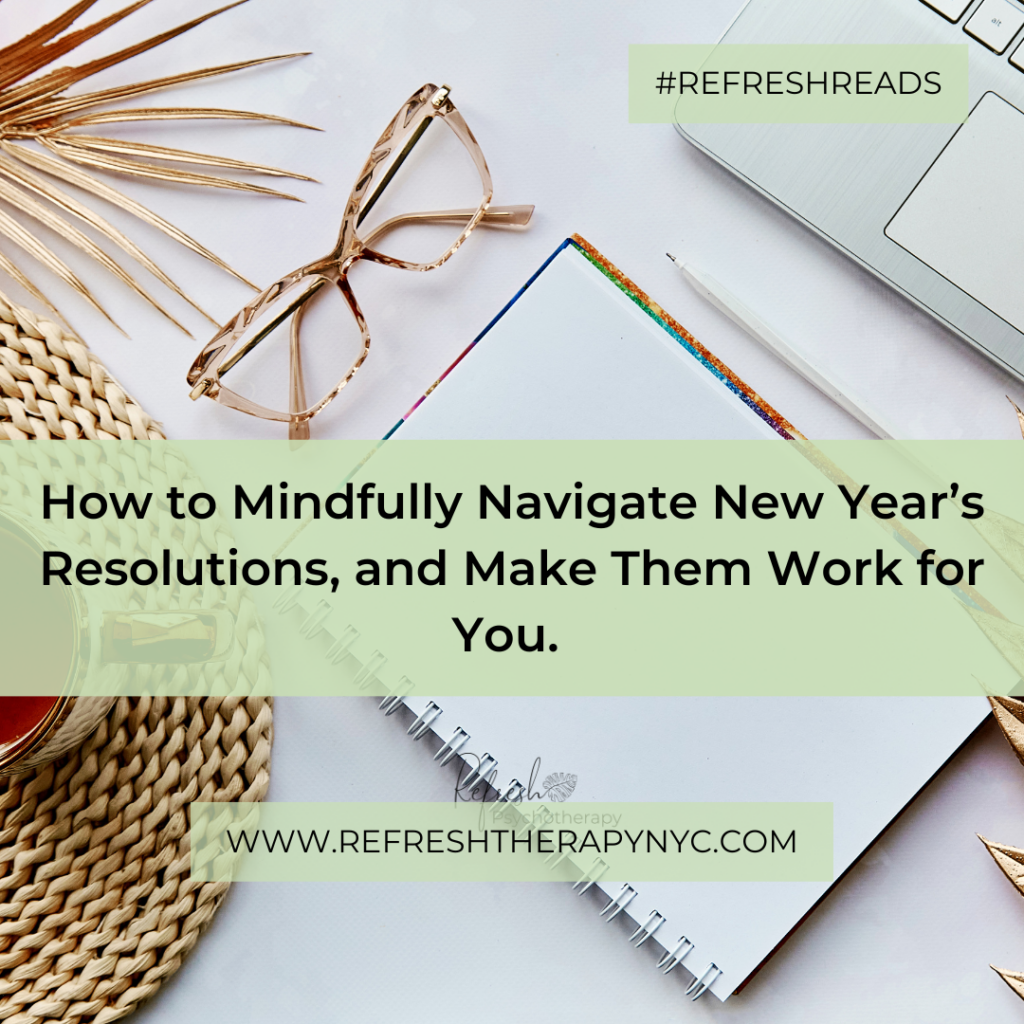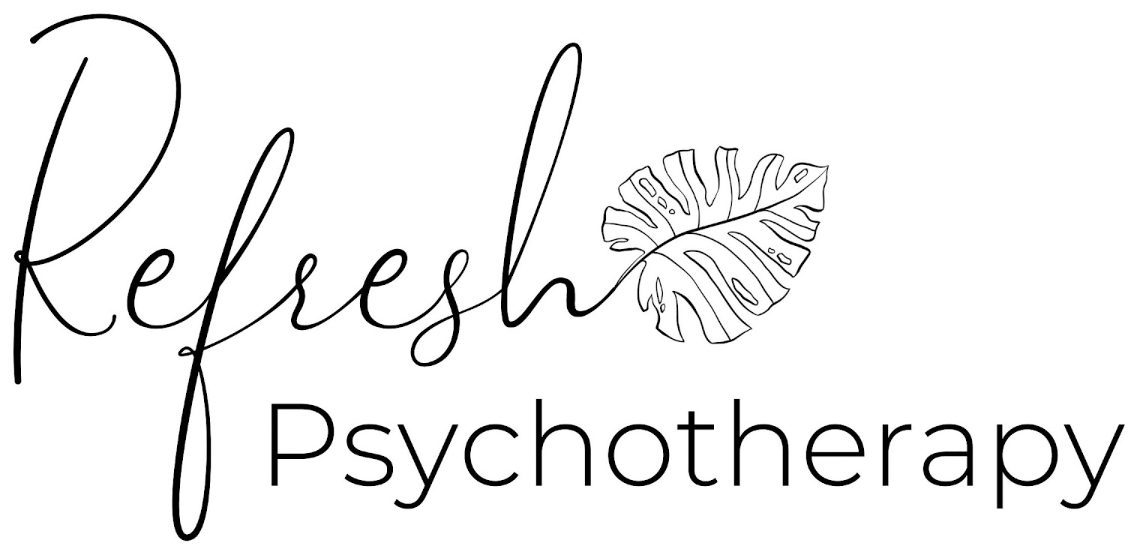How to mindfully navigate New Year’s Resolutions and make them work for you.
New Year’s Resolutions have become an integral aspect of the holiday season and our cultural fabric. Each New Year is widely perceived as an ideal moment to start a fresh chapter in life, marked by the commitment to introduce and cultivate aspiring habits and skills.
While the intention to create changes in one’s routine may be positive, New Year’s Resolutions may also become a source of stress and an increased focus on what is “wrong” and not working. This can exacerbate a sense of inadequacy, unhealthy perfectionism, and self-criticism instead of joy and fulfillment. As a result, so many of us may end up grappling with the weight of unmet resolutions, which can negatively impact one’s self-esteem and mental well-being.
Consider the following tips to navigate the New Year’s Resolution landscape more positively:
Give Yourself Permission to Opt Out: Recognize that the New Year’s resolution culture may not be suitable for everyone, and that’s perfectly okay. If the pressure or expectations associated with resolutions feel overwhelming or counterproductive to your well-being, allow yourself the freedom to opt-out. You may choose to forego New Year’s Resolutions completely or focus on alternative methods of personal growth or goal-setting that align better with your needs and values.
Cultivate Self-Compassion: Instead of fixating on perceived failures or setbacks, encourage yourself to practice self-compassion. Understand that change is a gradual process, and setbacks are a natural part of any transformative journey. Stay mindful of a positive self and treat yourself with the same kindness you would offer to a dear friend or loved one.
Find the Joy in the Process: Amidst the pursuit of resolutions, it’s crucial to enjoy the journey itself. Rather than fixating solely on the end goal, take time to appreciate the small victories and positive experiences along the way. Whether it’s learning a new skill, adopting a healthier habit, or pursuing a passion, infusing joy into your efforts can enhance motivation and create a more positive mindset.
Set Realistic and Attainable Goals: Work with realistic and achievable goals rather than setting overly ambitious or vague resolutions. Break down larger objectives into smaller, manageable steps to create a more sustainable path towards positive change. For example, committing to a 10-minute walk in the morning will work better as the first step towards a more active lifestyle than forcing yourself to set up an elaborate 2-hour exercise regimen.
Focus on Progress, Not Perfection: Shift the focus from achieving perfection to recognizing and celebrating progress. Acknowledge the steps you’ve taken toward your new goals, no matter how small. Embracing a growth mindset fosters a healthier perspective on personal development and supports your success.
Choose Resolutions Aligned with Values: Align your resolutions with your core values. This ensures that your goals are personally meaningful and contribute to a sense of purpose. A great question to ask is “What is important to me in the area of [ ]?” For example, if you value connection and community, then joining an in-person class to learn a new subject will work better than a self-paced online course.
Seek Professional Support: If the pressure of New Year’s Resolutions becomes overwhelming, consider seeking support from a mental health professional. Therapists can provide valuable guidance and tools to navigate challenges, fostering a more positive and sustainable approach to personal growth.
Remember, the essence of the New Year is not solely about resolutions but also reflection, gratitude, and embracing the opportunity for positive change. By approaching resolutions with a balanced and compassionate mindset, you can enhance your well-being and truly make the new year a transformative and fulfilling experience.
Written by Natallia Khalpukova

